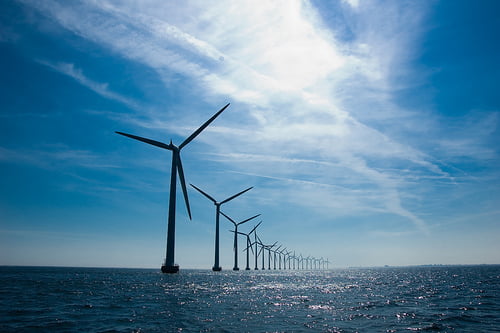

Economy
Wind power experiences boom but policies still lean towards fossil fuels
One in ten homes in the UK will be powered by the wind in 2015, according to figures released by trade association RenewableUK.
The statistics, which appear in the organisation’s State of the Industry report, shows that total installed wind capacity grew by a quarter between June 2011 and September 2012, with 1,825 megawatts of infrastructure now able to generate electricity.
The industry’s growth means it is on track to be the second largest single source of electricity in the UK by 2020, behind natural gas.
“We have taken significant strides forward – the evidence is laid out clearly in our State of the Industry report”, said Maria McCaffery, chief executive of RenewableUK.
“2011-12 saw overall capital investment in the offshore wind industry rise by 60% to £1.5 billion and a record amount of onshore wind capacity approved. These strong figures underline the importance of a secure trading climate to attract investment, especially in difficult times.
“That’s why it’s so important that the framework provided by the energy bill, currently under parliamentary scrutiny, must be right. Although we still have a long way to go to meet our challenging targets, we are firmly on track and gathering momentum.”
RenewableUK’s report also claims that renewable energy “as a whole could be providing more electricity than nuclear sometime between 2014 and 2016”.
Despite these encouraging figures, the Department of Energy and Climate Change announced 167 new oil and gas licenses last week, in a so-called “licensing round bonanza”.
Energy minister John Hayes – a vocal opponent of wind in the past – said that the fossil fuels were the “single largest industrial UK investor” and benefited the trade balance by £40 billion while supporting 440,000 jobs.
“Fortune has favoured the UK”, he added. “Oil and gas from our waters provides around half the energy we need to heat our homes, fuel our cars and power our industry.
“This successful licensing round shows we are taking the right action to offer certainty and confidence to investors. Our fiscal regime is now encouraging small fields into production and our licensing regime supports new faces as well the big players to invest.
“Importantly, we are guaranteeing every last economic drop of oil and gas is produced for the benefit of the UK.
“It is our work with industry that is cultivating this precious resource, making our seas a fertile landscape for investors for many years to come.”
The short-term economic benefits of investment in the oil and gas industry are myopic but understandable. In the long-term, both are finite resources and so are unsustainable and unstable investments. To discount the significant environmental and health effects of burning fossil fuels is the very definition of short-termism.
By squeezing “every last economic drop” out of the North Sea reserves, the UK may fail to meet legally-binding carbon reduction targets while also missing out on potentially limitless clean energy opportunities. The real story of the North Sea is its criminally underutilised renewable capacity.
But, despite his opposition to wind, Hayes told The Guardian today that, “Investing in cutting edge technology is very British”, with reference to the RenewableUK figures.
How much better and secure would it be for our economy and environment if he was reporting that, “Clean wind and wave power from our waters provides all the energy we need to heat our homes, fuel our cars and power our industry“?
Further reading:
Why policy is the biggest stumbling block of all for renewable energy
Drill, baby, drill: North Sea energy, 1970s-style
Clean British energy in action
Jonathon Porritt: the wonderful world of clean energy technology


 Environment12 months ago
Environment12 months agoAre Polymer Banknotes: an Eco-Friendly Trend or a Groundswell?

 Features11 months ago
Features11 months agoEco-Friendly Cryptocurrencies: Sustainable Investment Choices

 Features12 months ago
Features12 months agoEco-Friendly Crypto Traders Must Find the Right Exchange

 Energy11 months ago
Energy11 months agoThe Growing Role of Solar Panels in Ireland’s Energy Future




























